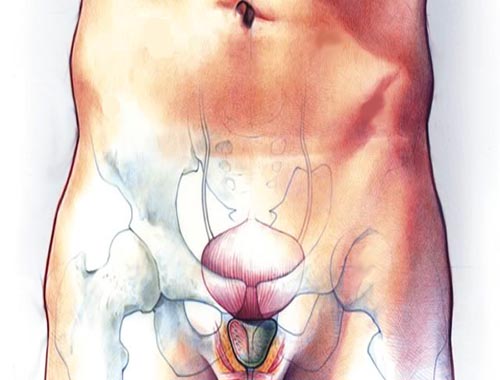Prostate Cancer
Prostate cancer occurs when cells in the prostate gland grow out of control. There are often no early prostate cancer symptoms, but some men have urinary symptoms and discomfort. Prostate cancer treatment options are surgery, chemotherapy, cryotherapy, hormonal therapy, and-or radiation. Prostate cancer is cancer that occurs in a man's prostate - a small walnut-shaped gland that produces the seminal fluid that nourishes and transports sperm. Prostate cancer is one of the most common types of cancer in men. Prostate cancer usually grows slowly and initially remains confined to the prostate gland, where it may not cause serious harm. While some types of prostate cancer grow slowly and may need minimal or no treatment, other types are aggressive and can spread quickly. Prostate cancer that is detected early - when it's still confined to the prostate gland - has a better chance of successful treatment. Prostate cancer may not cause signs or symptoms in its early stages. Prostate cancer that is more advanced may cause signs and symptoms such as: Trouble urinating; Decreased force in the stream of urine; Blood in the urine; Blood in the semen; Swelling in the legs; Discomfort in the pelvic area; Bone pain; It's not clear what causes prostate cancer. Doctors know that prostate cancer begins when some cells in your prostate become abnormal. Mutations in the abnormal cells' DNA cause the cells to grow and divide more rapidly than normal cells do. The abnormal cells continue living, when other cells would die. The accumulating abnormal cells form a tumor that can grow to invade nearby tissue. Some abnormal cells can break off and spread (metastasize) to other parts of the body.
